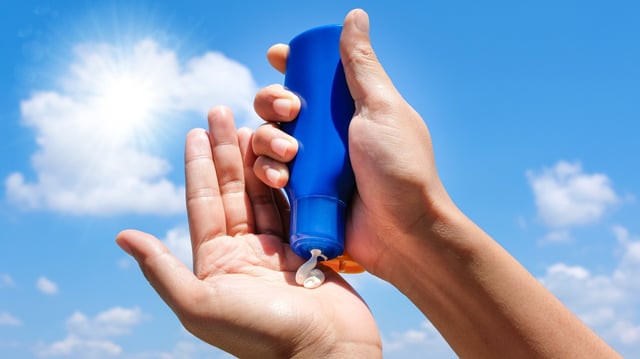Overview
- Recent studies reveal that sunscreens containing octocrylene can degrade into benzophenone, a potential carcinogen, when stored for over 12 months.
- Health authorities advise checking sunscreen expiration dates and avoiding the use of aged products, especially those with octocrylene, despite mixed safety assessments from consumer groups.
- UV radiation in Central Europe has risen significantly since 1997, with increases of over 10% in Germany and nearly 20% in Belgium, driven by climate change and reduced cloud cover.
- Skin cancer diagnoses in Germany have surged, with over 230,000 new cases reported in 2020; early protection and adherence to updated sunscreen application guidelines are critical.
- Environmental concerns persist as certain UV filters in sunscreens are linked to harm in marine ecosystems, including coral bleaching and reproductive issues in aquatic species.


